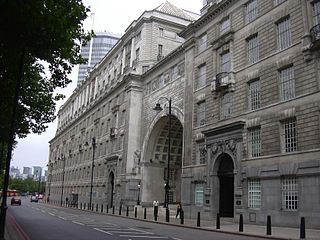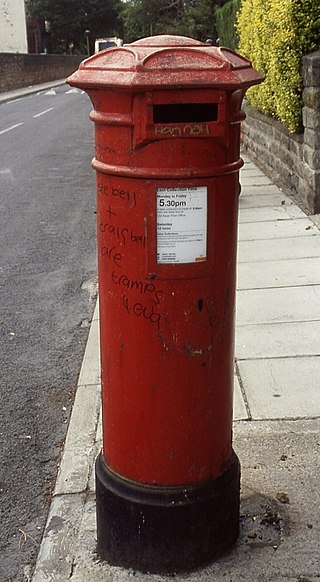Related Research Articles

Carlill v Carbolic Smoke Ball Company[1893] 1 QB 256 is an English contract law decision by the Court of Appeal, which held an advertisement containing certain terms to get a reward constituted a binding unilateral offer that could be accepted by anyone who performed its terms. It is notable for its treatment of contract and of puffery in advertising, for its curious subject matter associated with medical quackery, and how the influential judges developed the law in inventive ways. Carlill is frequently discussed as an introductory contract case, and may often be the first legal case a law student studies in the law of contract.
Offer and acceptance are generally recognized as essential requirements for the formation of a contract. Analysis of their operation is a traditional approach in contract law. This classical approach to contract formation has been modified by developments in the law of estoppel, misleading conduct, misrepresentation, unjust enrichment, and power of acceptance.

Felthouse v Bindley [1862] EWHC CP J35, is the leading English contract law case on the rule that one cannot impose an obligation on another to reject one's offer. This is sometimes misleadingly expressed as a rule that "silence cannot amount to acceptance".
Pharmaceutical Society of Great Britain v Boots Cash Chemists (Southern) Ltd [1953] EWCA Civ 6 is a famous English contract law decision on the nature of an offer. The Court held that the display of a product in a store with a price attached is not sufficient to be considered an offer, and upheld the concept of an invitation to treat.

Smith v Hughes (1871) LR 6 QB 597 is an English contract law case. In it, Blackburn J set out his classic statement of the objective interpretation of people's conduct when entering into a contract. The case regarded a mistake made by Mr. Hughes, a horse trainer, who bought a quantity of oats that were the same as a sample he had been shown. However, Hughes had misidentified the kind of oats: his horse could not eat them, and he refused to pay for them. Smith, the oat supplier, sued for Hughes to complete the sale as agreed. The court sided with Smith, as he provided the oats Hughes agreed to buy. That Hughes made a mistake was his own fault, as he had not been misled by Smith. Since Smith had made no fault, there was no mutual mistake, and the sale contract was still valid.

Butler Machine Tool Co Ltd v Ex-Cell-O Corp (England) Ltd [1977] EWCA Civ 9 is a leading English contract law case. It concerns the problem found among some large businesses, with each side attempting to get their preferred standard form agreements to be the basis for a contract.

Fisher v Bell [1961] 1 QB 394 is an English contract law case concerning the requirements of offer and acceptance in the formation of a contract. The case established that, where goods are displayed in a shop, such display is treated as an invitation to treat by the seller, and not an offer. The offer is instead made when the customer presents the item to the cashier together with payment. Acceptance occurs at the point the cashier takes payment.

Rose & Frank Co v JR Crompton & Bros Ltd [1924] is a leading decision on English contract law, regarding the intention to create legal relations in commercial arrangements. In the Court of Appeal, Atkin LJ delivered an important dissenting judgment which was upheld by the House of Lords.

In English contract law, an agreement establishes the first stage in the existence of a contract. The three main elements of contractual formation are whether there is (1) offer and acceptance (agreement) (2) consideration (3) an intention to be legally bound.
An invitation to treat is a concept within contract law which comes from the Latin phrase invitatio ad offerendum, meaning "inviting an offer". According to Professor Andrew Burrows, an invitation to treat is
an expression of willingness to negotiate. A person making an invitation to treat does not intend to be bound as soon as it is accepted by the person to whom the statement is addressed.
Payne v Cave (1789) 3 TR 148 is an old English contract law case, which stands for the proposition that an auctioneer's request for bids is not an offer but an invitation to treat. The bidders make the offers which can be accepted by the auctioneer.

Daulia Ltd v Four Millbank Nominees Ltd [1977] is an English contract law case, concerning unilateral contracts, and when embarking on the performance of an act for which an offer is open, at what point the offer may be withdrawn. In particular, Goff LJ observed that there would be a duty to not prevent full performance of terms in a unilateral offer, once performance had begun.

Lefkowitz v. Great Minneapolis Surplus Store, Inc 86 NW 2d 689 is an American contract law case. It concerns the distinction between an offer and an invitation to offer. The case held that a clear, definite, explicit and non-negotiable advertisement constitutes an offer, acceptance of which creates a binding contract. Furthermore, it held that an advertisement which did not clarify the terms of its bargains, such as with fine print, could not then be modified with arbitrary house rules.

The Litigation before the judgment in Carlill v Carbolic Smoke Ball Company was a rather decorated affair, considering that a future Prime Minister served as counsel for the company. A close reading of the submissions and the decision in the Queen's Bench show that the result of the Court of Appeal was not inevitable or necessarily a decision on orthodox principles of previous case law.

Blackpool & Fylde Aero Club v Blackpool Borough Council [1990] EWCA Civ 13 is a leading English contract law case on the issue of offer and acceptance in relation to an invitation to tender. In it the Court of Appeal of England and Wales decided that tenders and requests for tenders are accompanied by a collateral contract implying that the requestor will give due consideration to any timely bid.
Tenax Steamship Co v Owners of the Motor Vessel Brimnes [1974] EWCA Civ 15 is an English contract law case on agreement. It decided that communication of withdrawal of an offer by telex is effective when it could be read, rather than when it is in fact read.
Tamplin v James (1880) 15 Ch D 215 is an English contract law case concerning the availability of specific performance for a breach of contract induced by mistake. The case established that if a person enters a contract under a mistake that was not induced by the other party to the contract, specific performance may be awarded against the person if no hardship amounting to clear injustice would be inflicted on the person by holding him/her to the contract.

Holwell Securities Ltd v Hughes [1974] 1 WLR 155 is an English contract law case overriding the usual postal rule.
Contract law in Saudi Arabia is governed by the conservative Hanbali school of Sharia law, which adopts a fundamentalist and literal interpretation of the Quran. Any contract that is not specifically prohibited under Sharia law is legally binding, with no discrimination against foreigners or non-Muslims.

Cuckmere Brick Co v Mutual Finance[1971] EWCA Civ 9 is an English tort law case, establishing the lender must publish/promote the materially beneficial key, intrinsic facts as to land in mortgage repossession sales. As it affects the duty of mortgagees, to that extent it can be considered within the periphery of English land law also.
References
- ↑ Oughton (17 October 2000). Sourcebook on Contract Law. Taylor & Francis. pp. 33–37. ISBN 978-1-84314-151-8.